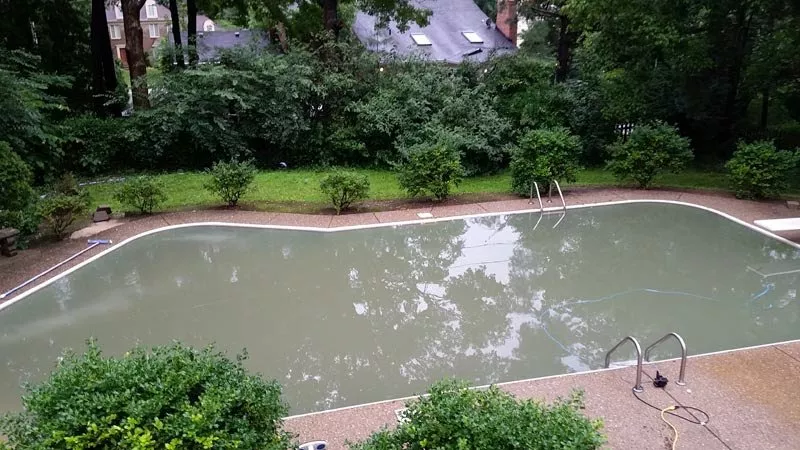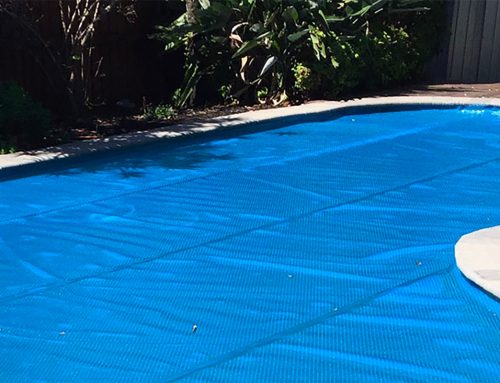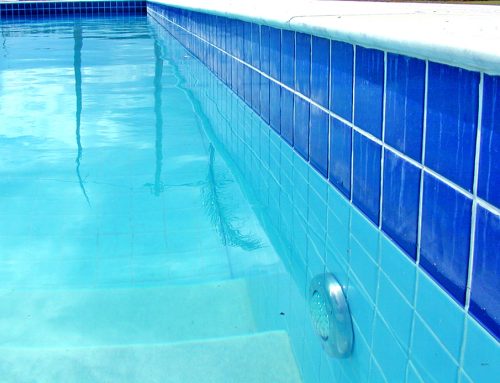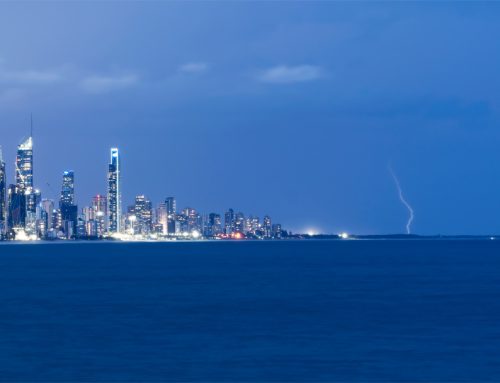Contaminants in the Pool from Rain!
Contaminants in the Pool from Rain!
From Run-Off: When a backyard pool gets 12 cm of rain in a few hours, flooding can result. If surrounding planters or lawns, or even concrete pool decks overflow into the pool, just a handful of soil or mulch can elevate phosphate levels and create problems with cloudy water and algae.
In severe cases, a pool can fill with a thick layer of silty mud, and all sorts of debris. Use leaf rakes to remove the big stuff, followed by a slow vacuum to waste. Follow-up with a good daily pool brush, and near continuous filtering. Clarifiers and flocculants can be used to speed up the process considerably, and may be needed for sand filters.
As the water clears, use a phosphate remover chemical to naturally consume phosphates in your pool. Just pour it into balanced pool water, run the filter for 24 hours, then backwash.
From the Rain: Rain is pure, distilled water, but as it falls through the air, it picks up dust, pollen, pollutants, oils, even algae spores. If you have tall trees overhanging the pool, rain will wash them clean, right into your pool, adding phosphates and other organic gunk. Add algaecide before a storm to help battle incoming invaders as they enter the pool.
Rain can also destroy your pool’s water balance. It dilutes the cyanuric acid, and can also soften the water, lowering calcium hardness, and it can affect pH and alkalinity as well. Acid Rain falling through smoggy summer air hits your pool at a very low pH, reducing pool pH and alkalinity. Be sure to test your water and come into the pool shop for your free water testing.
High Wind, Debris & Projectiles
Before a storm hits: Store all loose toys, furniture and cleaning equipment that could become airborne in high winds. Don’t cover the pool, which can be damaged severely in a heavy storm.
After a storm hits: Clean the pool, lower the water level, check the water balance and the chlorine level, adding sanitizer if needed. If your pool is a funky color, super-chlorinate with some pool shock, and run the filter overnight. It’s best to remove leaves and debris from the pool, and lower the pH to 7.2, before shocking the pool.
Flooded Pool Equipment
Keep the filter running, however if flood waters threaten to submerge the pool pump, shut off power to the pool on the main home panel. If you can safely remove the pump, store it indoors, if the pump motor becomes submerged, it will likely need to be replaced.
Regular rain falling on your pool equipment will not usually cause any harm, even if it lasts for days on end. If concerned however, you can build a lean-to of some sort over your filter pump. Flooding however is the real problem. Sand bagging your pool equipment could save you from pump replacement, if flood waters rise above the equipment pad.
Poor Water Drainage
If your pool has a tendency to flood in some areas of the pool deck, and if run-off from heavy rains ends up in the pool – it needs to be fixed. Pool decks should slope 0.6cm for every 30 cmt, and storm run-off needs to go somewhere; never in the pool.
Look at the way water moves around the pool, and rework the land to create natural swales, or install drains and drain pipes, or install French drains in gravel around the pool deck, sloped to a downhill, away from the pool location, and also away from the pool equipment.




